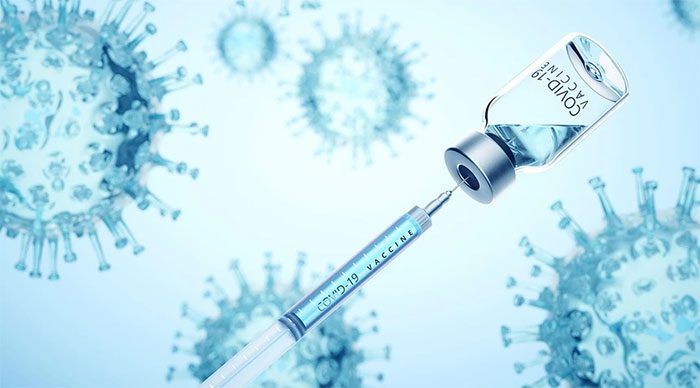At every age, there are risks of developing various diseases; therefore, each stage of life has specific vaccine recommendations that are appropriate.
In the stages of infancy and childhood, adolescence, adulthood, and old age, individuals are at risk of different diseases based on their health status and immune system.
Consequently, the UK Health Agency (NHS) has issued a list of recommended vaccines for each age group, according to the Telegraph.
Children Aged 8 Weeks to 12 Months
Recommended Vaccines: MMR, diphtheria, hepatitis B, Hib type b bacteria, polio, tetanus, whooping cough, rotavirus, MenB, Hib/MenC, pneumococcal.
The measles, mumps, and rubella (MMR) vaccine is recommended to be administered in two doses: at one year and again after three years.
If a child has not received adequate doses and there is an outbreak of measles in the area, vaccination should occur as soon as possible.
In addition to the MMR vaccine, the 6-in-1 vaccine is also recommended for children aged 8 to 16 weeks. This vaccine protects against diphtheria, hepatitis B, Haemophilus influenzae type b (Hib), polio, tetanus, and whooping cough.
Next, a booster of the 4-in-1 vaccine for diphtheria, polio, tetanus, and whooping cough should be administered before the child starts school.
Similar to the MMR vaccine, experts are concerned that the vaccination rates for the 6-in-1 and 4-in-1 vaccines are declining, which increases the risk of polio and whooping cough in the UK.
Between 8 to 16 weeks, children should also receive the rotavirus vaccine, the leading cause of vomiting and diarrhea, and the MenB vaccine – which protects against group B meningococcal bacteria that can lead to meningitis and sepsis.
At one year, children should receive the Hib MenC vaccine to protect against two strains of bacteria that can cause permanent brain damage and sepsis.
Since infants are at high risk for pneumonia, the NHS recommends the pneumococcal vaccine to protect against the streptococcus pneumoniae bacteria, which can cause severe lung infections in young children and the elderly.
Children Aged 2 to 12 Years
Recommended Vaccines: Influenza, Covid-19, chickenpox.

Health organizations advise citizens to receive Covid-19 vaccinations when outbreaks resurge. (Photo: AAMC).
Children in this age group should receive the flu vaccine regularly as flu season approaches. This age group is more likely to experience severe symptoms if they contract the illness. The UK health agency reported that 6,000 children under five were hospitalized due to flu during the winter of 2022-2023.
Additionally, children are also advised to get the Covid-19 and chickenpox vaccines if they have weakened immune systems and during outbreaks.
Individuals Aged 12 to 18 Years
Recommended Vaccines: Tetanus, diphtheria, and polio booster, HPV.
At 14 years old, adolescents should receive the Td/IPV booster to protect against tetanus, diphtheria, and polio. The MenACWY vaccine is also recommended for protection against four strains of bacteria that cause meningitis and sepsis.
One of the important vaccines recently introduced is the HPV vaccine, recommended to protect against nine strains of HPV. This virus is the leading cause of cervical cancer in women, accounting for 95% of cases.
Recently, HPV-16 has also been linked to 90% of head and neck cancer cases, primarily in men. Therefore, receiving the HPV vaccine is important regardless of gender.
Dr. Elizabeth Marsh, an HPV cancer expert at the University of Derby, UK, stated that HPV-related throat cancer cases in the UK account for more than half and are on the rise. In fact, throat cancer cases in men are now more prevalent than cervical cancer in women in both the UK and the US.
Individuals Aged 18 to 80 Years
Recommended Vaccines: Influenza, Covid-19, pneumococcal, RSV, shingles.
Pregnant women are often a special group that needs to receive both the flu and Covid-19 vaccines. Women’s immune systems are generally weaker during pregnancy.
As individuals age, vaccines become increasingly important as the immune system weakens. Health agencies recommend the pneumococcal vaccine to protect against pneumonia and the seasonal flu vaccine for those over 65 years old.
Individuals over 65 may receive two doses of the shingles vaccine, spaced 6-12 months apart. Vaccination is advised for those from 50 years old if they have severe immune suppression.

At each age, different vaccines are recommended. (Photo: Telegraph).
Individuals Over 75 Years Old
Recommended Vaccine: RSV.
Respiratory syncytial virus (RSV) is a significant cause of early death among the elderly, especially when it exacerbates chronic pneumonia. The UK will launch an annual RSV vaccination campaign for individuals aged 75 and older, given that the virus causes 33,000 deaths among those over 65 each year.
Special Cases
According to the NHS, some individuals may not qualify for vaccinations due to allergies or compromised immune systems. These cases may include those undergoing chemotherapy, organ transplant recipients, and individuals with autoimmune and gastrointestinal diseases that weaken the immune system, affecting vaccine efficacy.
Professor Andrew Ustianowski, an infectious disease consultant in Manchester, UK, stated that alternative solutions for these cases need to be explored, such as administering artificial antibodies that can stimulate immunity similar to vaccines.


















































